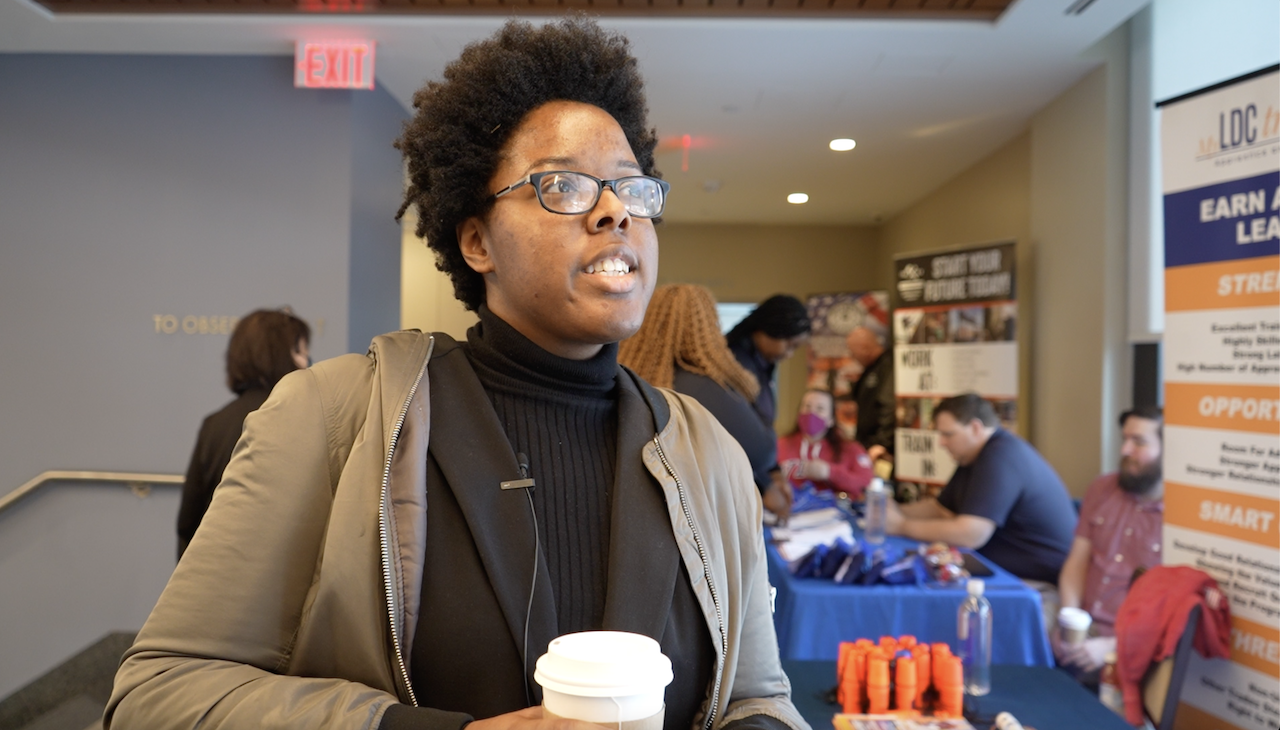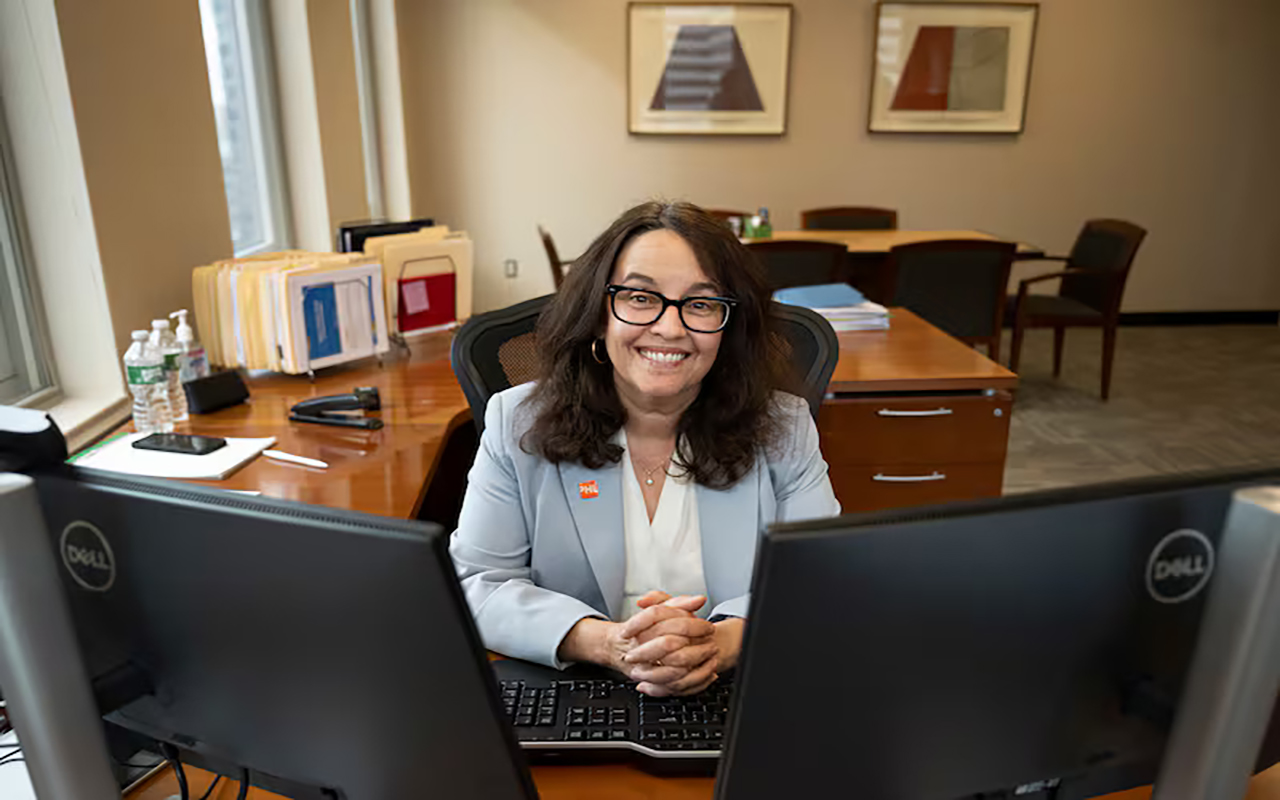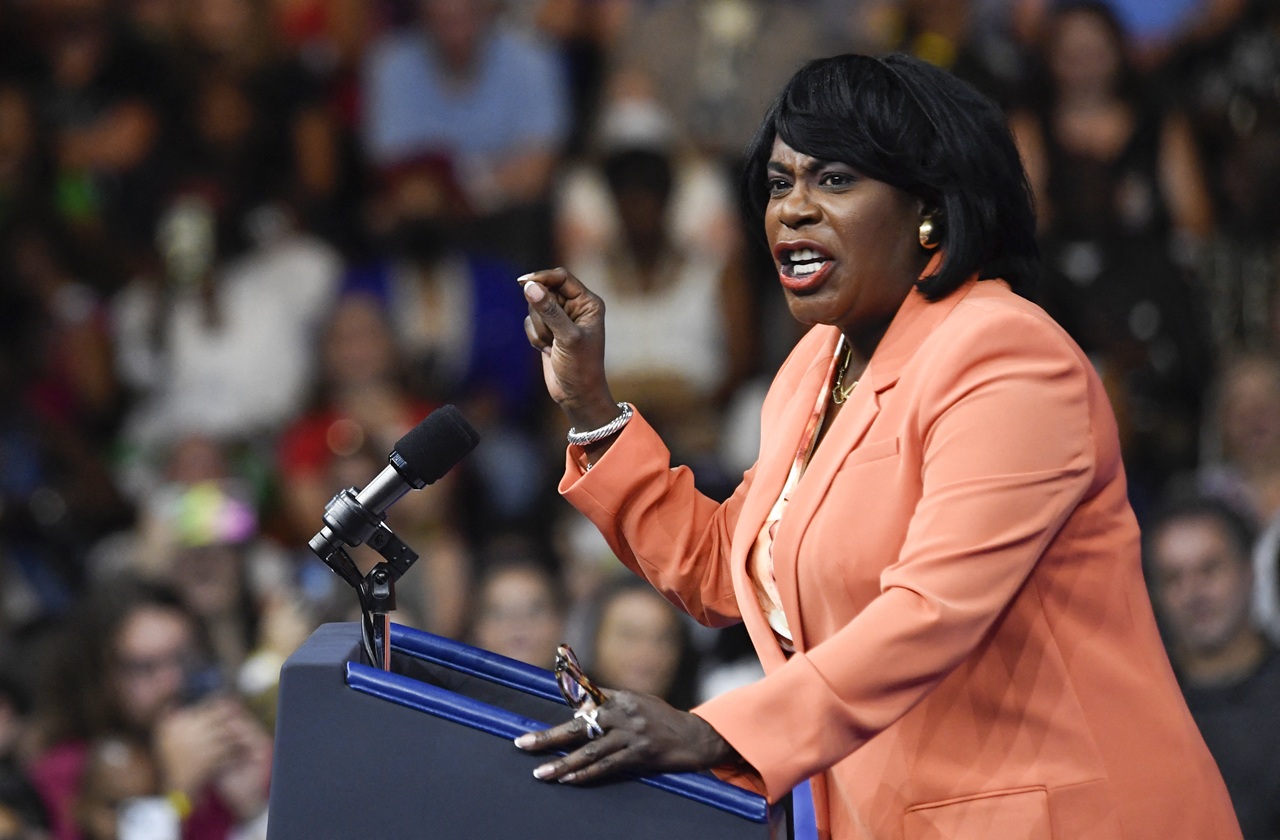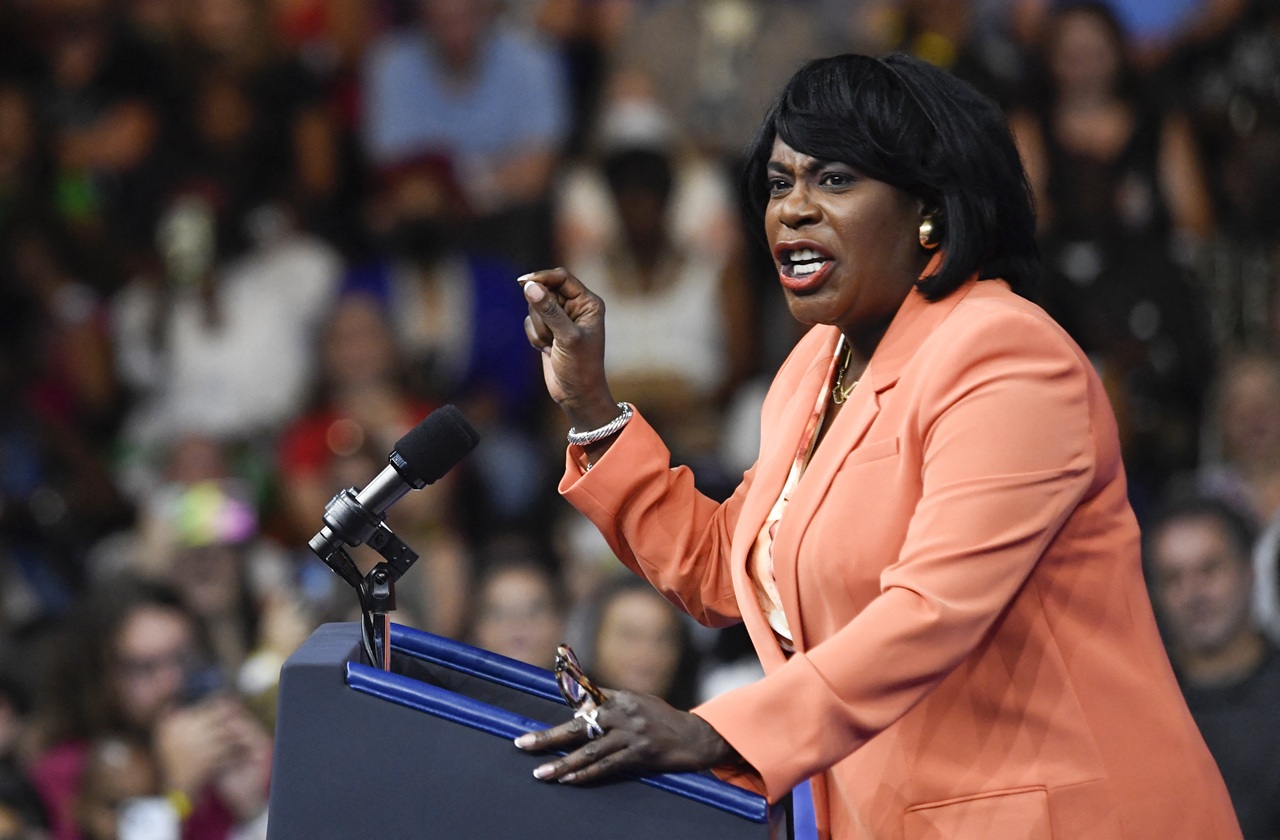
Philly vets look to the trades for a career after service
AL DÍA was on hand at a labor career fair for veterans a few weeks back featuring most of the city’s local unions.
When Taylor Tuck got out of the army after a year she came back to her native West Philadelphia and took up work in retail while she figured out her next steps.
For vets like Tuck, that next phase career-wise can be a difficult process alongside just trying to reintegrate into normal society following the regimented life of the military. In the army, Tuck was a cook, and it involved getting up earlier than everyone else to meal prep for between 400 to 500 soldiers.
That’s far from her routine these days, but it’s those early mornings and the discipline of an army schedule that make her a perfect candidate for the trades, according to many labor leaders AL DÍA spoke to on Nov. 17. They were present at a labor fair geared towards veterans, held at the Laborer’s Training Center on North Broad Street.
“Our contractors, when they hire you, want you to be on time,” said Tom Redden, the Financial Secretary-Treasurer of Steamfitters Local 420. “The people that come out of the services, they have that background… You know they’re gonna be there and you know they’re gonna do the work.”
The pay also isn’t too bad either, especially compared to the military.
That was also a main draw for Jerry Golden, a steamfitter, who is now a journeyman with a contractor in West Chester. He was a marine for eight years, did multiple tours in Afghanistan and rose to be a platoon sergeant, overseeing 52 other soldiers.
“My salary was a lot less than what I’m making now,” said Golden.
That sentiment was also echoed by Redden.
“There’s not a lot of jobs out there for somebody who didn’t graduate from college to make the money that we make,” he said. “They’re gonna be able to provide for their children and their families.”
But where do they start beyond going to a fair?
For that, they need to meet people like Dan Breslin. He’s a regional manager for Helmets to Hardhats, a longtime program founded in 2003 by the International Building Trades Union. At the time, unemployment rates for veterans coming home from wars in Afghanistan and Iraq were between 16% and 18%.
RELATED CONTENT
The solution was to connect many of those vets with apprenticeship programs in various trades. Breslin called the programs “like another form of college.” They get credits as they learn more skills on the job — while being paid with benefits — and graduate with no debt.
At the end, “they’re gonna have a skill that they can use the rest of their life to earn a good living,” said Breslin.
Some unions also have their own programs geared toward veterans. The Steamfitters have the Veterans in Plumbing (VIP) program, which is set up at some bases across the country.
Others, like the Seafarers International Union, provide a very similar military structure in both their apprenticeship program and regular work, making the transition an easier one for those coming out of the service.
The Seafarers often work on military contracts, but also help with the transport of goods via the sea. Because of their work mainly taking place aboard shipping vessels on open water, there is a level of discipline that must be drilled into prospective union members.
“Being merchant mariners, I think it’s a close parallel to military work,” said Andre MacCray, a safety director and patrolman at the Seafarers Union. “In that regard, it’s almost like not leaving.”
The fair is also where AL DÍA met Tuck. The idea of potentially taking up a trade came from her uncle, who installs drywall and is also a bricklayer. As a potential trade, Tuck mentioned carpentry as sticking out the most during her initial peruse of the fair, but all trades were important to her no matter their specialization.
“It’s very important to have labor workers,” said Tuck. “They’re the same people who built the very buildings we stand in, and we need more people like them.”











LEAVE A COMMENT: